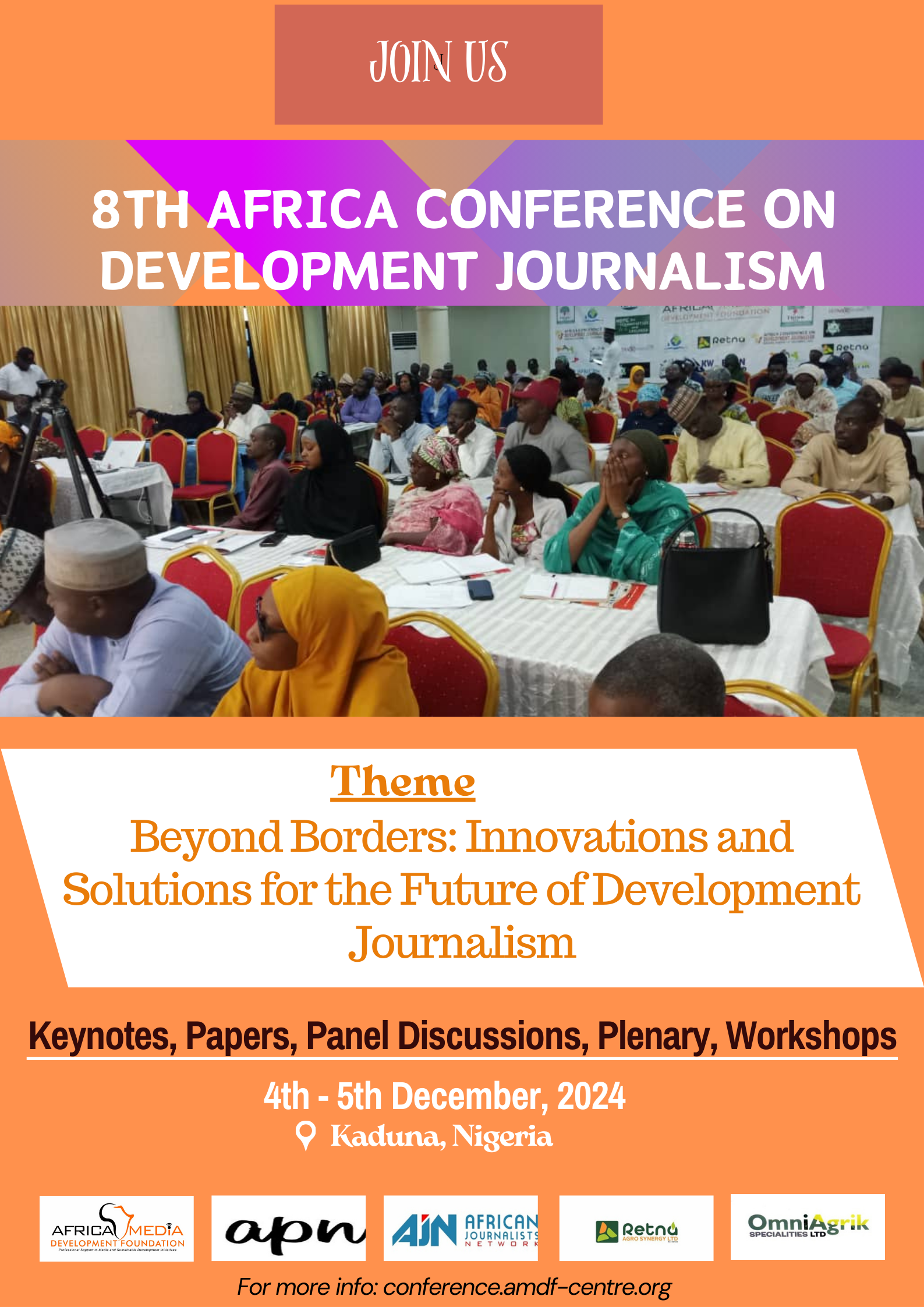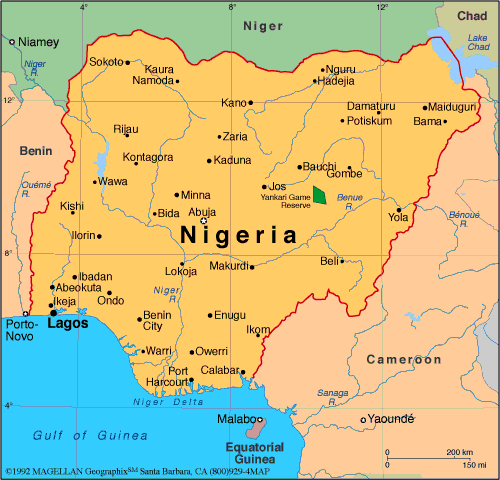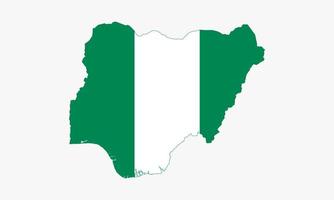The John D. and Catherine T. MacArthur Foundation is an American Foundation that “supports creative people, effective institutions, and influential networks building a more just, verdant, and peaceful world”. It has operated an office in Nigeria since 1994 and has so far invested over $341million in grants to private and public organisations in the country.
In this interview with PREMIUM TIMES, the Foundation’s African Director, Kole Shettima, speaks about the organisation’s work in Africa’s most populous nation, how the Foundation navigated the country’s pre-democracy era and how the transition from the current programming will happen.
EXCERPT:
PT: Your Foundation is massively investing in Nigeria through a number of innovative programmes. For instance, through your On Nigeria project, you have awarded close to $90 million to Nigerian organizations since 2015. Why is Nigeria so important to your Foundation?
Kole Shettima: Thanks for this important question. The Foundation has a historical relationship with Nigeria. When we opened an office in Nigeria in 1994, the most important consideration was its potential strategic role in the world: the people, population size, role in the region, youthful population, level of education and its economy. I believe these considerations are still important in 2021. Of course, there have been ups and downs since 1994 but the Foundation is not naive to believe that everything will be hunky-dory. For example, during the military rule of Sani Abacha, many development partners closed shop. But the Foundation remained in Nigeria. Our commitment and passion was and is to the Nigerian people. We were witnesses to history and stood by the Nigerian people. Your best friend stands with you when you are most vulnerable and weak.
PT: You have been here for a long time. What major challenges have you faced so far working here?
Kole Shettima: We have faced few challenges but l don’t consider them as major unless contextualised. For example, in the course of the implementation of projects, our grantees have done things that others have strong opinions against. I recall when the government approved the implementation of the national sexuality education curriculum. When you look at the curriculum, it is not very far from what religious schools teach their pupils but the translation of the title into local languages is something like teaching children how to have sex! Obviously, no parent will not object. Our media grantees report or investigate issues that some people think why are we supporting these groups or they expect us to put pressure on the publishers.
I also recall the presidential candidates’ debate in 2019 when both some members of the PDP and the APC were angry or happy depending on the candidate of which of the parties was interviewed. We pay attention to our diversity in our grantmaking. I am personally concerned about how our resources enhance justice, equity, inclusion and fairness. We have a responsibility to ensure that no one is left behind. It is hypocritical for us to criticise governments for the same thing we practice. Of course, you have infrastructure issues but compared to what others go through, we live in heaven. In reality, the challenges we face are minor compared to what others go through.
PT: What are the motivations for this huge investment your Foundation is making in Nigeria?
Kole Shettima: The people, and the strategic importance of the country in the continent and the world. I may have an exaggerated view of Nigeria but I think the fate of the black race is tied to Nigeria and vice versa. We also consider the growth, vitality and diversity of civil society groups. The relative independence and strength of the media are important factors. Encouraging Nigeria and Nigerians on the path of democracy has a salutary impact on the region. We are all witnesses to the recent positive role of Nigeria in the Gambia, for example.
PT: Your Foundation came during the difficult days of the Sani Abacha dictatorship when civil liberty was restricted. Yet you were funding pro-democracy and human rights activities. How did you navigate your work to escape being sanctioned or ejected from here by the junta?
Kole Shettima: When we opened our office in 1994, we were restricted to supporting only population and reproductive health issues. In addition, we were restricted to supporting only individuals and not organisations. Given the regulations which defined our work, we started supporting human rights and pro-democracy movements through intermediary organisations based outside the country. Most of our support was through the Centre for Democracy and Development which was started primarily by Nigerians outside of the country with the current Governor of Ekiti State as the Director.
PT: Were you not afraid that Abacha could find out that you were indirectly supporting pro-democracy activities in the country?
Kole Shettima: Private foundations are flexible, nibble and take risks. Unlike multilateral and bilateral agencies who have to worry about the implications of their work to the relationship with the Nigerian government, we are less concerned. We are also in Nigeria because of the Nigerian people. Your friend indeed is your friend indeed. We wanted to be in solidarity with the Nigerian people despite the risks. From our perspective, it was easier to stay in Nigeria despite the potential risks with the Nigerian government to be witness to history. The Nigerian people were more at risk than the Foundation.
PT: Now, let’s talk about your ongoing On Nigeria project. That seems your most ambitious and aggressive programming so far. You have given out several million dollars working with for-profit and non-profit organizations as well as government agencies. What did you set out to achieve with this project?
Kole Shettima: Our current programme, which started in 2014, is focused on supporting Nigeria-led efforts to reduce corruption and enhance accountability. We started the programme after the leadership of the Foundation charged us in Nigeria to think about the issues the country should focus on even if such programmes didn’t exist in the Foundation. After consultations with various stakeholders, we concluded that corruption and impunity were central to many of the problems of Nigeria and Nigerians. We, therefore, started supporting various initiatives including behavioural change through faith groups and the entertainment industry, investigative journalism in English and local Nigerian languages, reform of the criminal justice system and strengthening of civil society.
We approach the challenges of corruption from a whole society: government, civil society and private sector. We are not naive to conclude everyone in government is bad and everyone in civil society is good or vice versa. Nor do we conclude that the private sector is better than the public or vice versa. It is for this reason we are happy to support various stakeholders to contribute to the reduction of corruption in the country.
PT: What will you say are the major impacts of your work and investments here so far?
Kole Shettima: This is a loaded question especially if the anticipation is the impacts of our work from 1994 when we started our work. I briefly answer the question. We had several programmes prior to 2014 when we started our new programme. Our initial focus was on population and reproductive health where we supported leadership development.
I met a professor from the University of Ibadan six weeks ago who was a beneficiary and he told me of how the Foundation gave him a leg up by enabling him to buy his first computer, first phone line (remember in the 1990s Nigeria had only 400,000 phone lines) and how these improved his academic work. He was appointed Secretary to Government, Chief of Staff, Commissioner with a couple of portfolios etc.
In terms of our work on human rights, our most important contribution was the support to civil society and pro-democracy organisations that led the struggles against military dictatorship and enthroned democracy. Our higher education work has led to the emergence of stronger universities. Take the example of Bayero University Kano which has grown to be one of the leading universities that attract funds from multilateral and bilateral agencies and their students participate in global competitions.
Our work on maternal health and young people’s sexual health is the DNA of the Foundation in Nigeria. I recall an interview with a matron in a hospital where she was asked about incidents of eclampsia. Her response was “eclampsia is history”. What is more gratifying than to hear such testimonials? Eclampsia is one of the major causes of maternal death. Our work on higher education led us to girls secondary education. If there is any magic bullet to development challenges, it is universal quality girls education.
Several of our development challenges are addressed by universal qualitative girls secondary education: employment, skills, teenage pregnancy, illiteracy, VVF, malnutrition, antenatal and hospital deliveries and self-esteem among others. We had a small initiative on the Niger Delta which framed the context more nuanced by bringing attention to the socio-economic and political dimensions of the problems.
In our current work on anti-corruption and accountability, we are very pleased with the work to support independent media and investigate journalism. If you want editorial independence you must have independent sources of financial support. I am happy that many of the groups we support hold duty bearers accountable even though on many occasions government officials are not happy with our support.
The support to reform the criminal justice system led to the Administration of the Criminal Justice Act/Law. It is now much easier to convict those alleged to have corruptly enriched themselves than ever before and we can see that in the convictions by ICPC and EFCC. There are many policies introduced to reduce money laundering and enhance accountability. Several civil society organizations have successfully challenged government policies in courts and through administrative processes developed through the work of the Presidential Advisory Committee Against Corruption.
Religious leaders are not only praying for the prosperity of their members but also engage in the social teaching of the congregations. Our support to strengthen accountability in the education sector has resulted in big and small wins. On certain occasions, the small wins are even more important because it touches the lives of ordinary citizens. We strengthen the system to deliver the national feeding programme and civil society to monitor actual delivery. When l visit a school and see a very poor child struggling to get a half loaf of bread with a broad smile and keeping a portion to share with siblings at home, it reminds me why we do this work.
The work on anti-corruption and accountability is not exotic. It is about life and death, it is about creating opportunities for people, it is about putting a roof on a building so that children can be in a classroom, it is about dysentery, cholera and maternal and child mortality. This is why we do this work and this is what keeps me awake at night. Seeing the results brings the satisfaction that although we are away from achieving our goals, we have made a difference in the lives of millions of Nigerians through policies, programmes, investigative journalism, reform of the criminal justice and activists in civil society.
PT: How much can we say your Foundation has invested in Nigeria since its arrival here?
Kole Shettima: We categorize our support into two: organisations and individuals based in Nigeria and organisations and individuals that are not based in Nigeria but have activities in Nigeria. Between 1986 and 2021, in the first category, we have supported 713 individuals and organisations to the amount of $216.7 million and in the second category, we have supported 233 individuals and organisations to the amount of $123.4 million.
PT: Some Foundations complain about mismanagement of grant funds by beneficiaries – individuals and organizations. What has been your own experiences?
Kole Shettima: In the world we work, the first principle is trust. We have to trust individuals and organisations to do the right things. We can put all structures and processes to ensure accountability but the most important issue is trust. It is like an honorary system.
Having said that, indeed we had cause to cancel grants or not to renew or suspend some grantees. Sometimes, the issue is not fraudulent activities, rather undue bureaucracy and inefficiency of their systems. Many organisations don’t want to support institutions because of fear of lack of accountability. However, sometimes, we take the risk to support government institutions because unless we get our government institutions to work, there will be no future for the country.
PT: Will you say your investment so far in Nigeria is money well spent?
Kole Shettima: We are happy with the support given to Nigeria and Nigerians. However, the Foundation doesn’t believe in attribution. Instead, we are for contribution. Also, some investments we make this year may not show any results until more than 10 years. Thirdly, the Foundation is a learning organisation that takes risks and learn from our mistakes and that of our grantees.
Limiting myself to the work we have done from 2015, l want to say that we have positively impacted the lives of ordinary citizens. Few examples, through our support to the Nigeria Electricity Regulatory Commission, various policies have been introduced to enhance accountability in the power sector. These include metering and customer enumeration. The customer enumeration led to the identification of customers from five million in 2017 to 13 in 2021. Metering has reduced estimated billing and more transparency introduced to the system. Customers are now more aware of their rights and means of seeking redress. This is in addition to better safety and health standards.
There are new policies on asset recovery and whistleblowing, as well as the implementation of the administration of the criminal justice system. Resources accrued as a result have improved the quality of lives of ordinary citizens.
We have strengthened the media landscape and l believe there are higher quality and more independent reporting which hold government officials and the private sector accountable. There are more civil society organisations promoting and demanding accountability and anti-corruption.
We are also very pleased with the outcomes of the support to NEITI under the leadership of Waziri Adio. NEITI of Nigeria is one of the eight organisations that have attained the highest level of disclosure so far out of the 58 countries implementing EITI across the world.
Another example of impact is our support of the ICPC. The organisation launched an initiative on constituency projects. This has led to 59 contractors handling projects worth N2.2 billion going back to sites. These projects include water, health and rural electrification. Earlier, more than 200 hitherto abandoned projects had contractors returning to sites. Similarly, the ICPC has caused the government to issue new circulars to prevent corruption. It recovered N3.3 billion in 2020 and N2.1 billion in 2021 in addition to 145 physical assets comprising land, buildings, farms etc.
PT: What are your plans going forward? For how long will the On Nigeria project continue? Are there new programmes you are planning?
Kole Shettima: The On Nigeria programme, like other Big Bets, is time-bound. We are in the second phase of the programme, which ends in December 2024. There will be a process to determine what will be the successor programme. I am sure there will be wide consultations with many stakeholders to determine what follows next.
PT: Thank you very much, Dr Shettima, for your time.
Kole Shettima: Thank you too.






